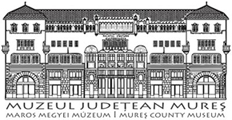Marisia - Maros Megyei Múzeum Évkönyve 36/2. (2016)
Vasile Ciobanu: Activitatea de răspăndire a cărţii desfăşurată de Liga Culturală a Germanilor din România (1922-1931)
Marisia XXXVI Activitatea de räspändire a cärtii desfäsuratä de Liga Culturalä a Germanilor din Romania (1922-1931) Vasile CIOBANU The Work of bookdistribution carriedout by the Cultural League Germans in Romania (1922-1931) Abstract The Cultural League of Germans in Romania was established in 1922 by the Union of Germans in Romania, a political organization which reunited the following groups of Germans in Romania after 1918: Transylvanian Saxons, Banat Swabians, Satu Mare Swabians, MaramuresZipser, Germans in Mountainous Banat, Bukovina Germans, Bessarabia Germans, Dobrogea Germans, Germans in the Old Kingdom. The League’s goal was to contribute to the cultural development of these groups of Germans, to their education in the national spirit, to their unification. The League had several fields of activity, among which the distribution of books among the 745.000 Germans in Romania (1930). The Cultural League bought books from Germany or Romania and then distributed them against payment in villages and cities where Germans lived. In other cases, organizations in Germany which supported German minorities donated books to poorer communities in Romania, through the Cultural League. These books helped in founding small popular libraries and school libraries. In Sibiu, the League also founded a lending library, with books of belletristic and specialty literature (for teachers, engineers, clerks), and a library of texts of plays which were lent to amateur groups in villages. The library in Sibiu also had a reading room, where the 250 Romanian and international newspapers and magazines could be read. The League obtained a series of books and periodicals through exchange with the books they published and with Ostland magazine, which they edited in the years 1926-1931. Other volumes were sent to the editorial staff to be reviewed in the magazine. The Cultural League’s dissolution on 1 August 1931, as a consequence of the economic crisis, put a stop to the work of book distribution. However, the German propaganda in Romania did not end, on the contrary, after 1933, it intensified on multiple channels, along with the Nazis’ rise to power and the proclamation of the Third Reich. In its ten years of activity, the Cultural League of Germans in Romania distributed hundreds of thousands of books, magazines, newspapers, brochures, maps, postcards, among Germans in Romania, as well as among Germans from other countries. The Cultural League did not make ordinary book trade, as a bookstore would, as its main goal was not business, but preserving and strengthening the cultural identity of Germans in Romania. Cuvinte cheie: minoritatea germáné, asociatieculturalé, bibliotecipopulare, minoritatea germana, educatie Keywords: German minority, cultural society, libraries, education, Richard Csáki ín primele decenii ale secolului trecut räspändirea cärtii a fost indispensabilä pentru ridicarea culturalä a unui popor, pentru consolidarea si pästrarea identitätii sale. Aceastä activitate a fost Tn principal apanajul unor asociatii si societäti culturale. Cea mai cunoscutä pentru női este Asociatiunea pentru Literatura Romänä si Cultura Poporului Román, ASTRA, despre care existä astäzi о Tntreagä literaturä.1 1Vezi indeosebi sintezele publicate de Pamfil Matei, „AsociatiuneaTransilvanä pentru Literatura Romänä s iCultura Poporului Romän" (ASTRA) si rolul ei in cultura nationalä (1861-1950) (Cluj-109
